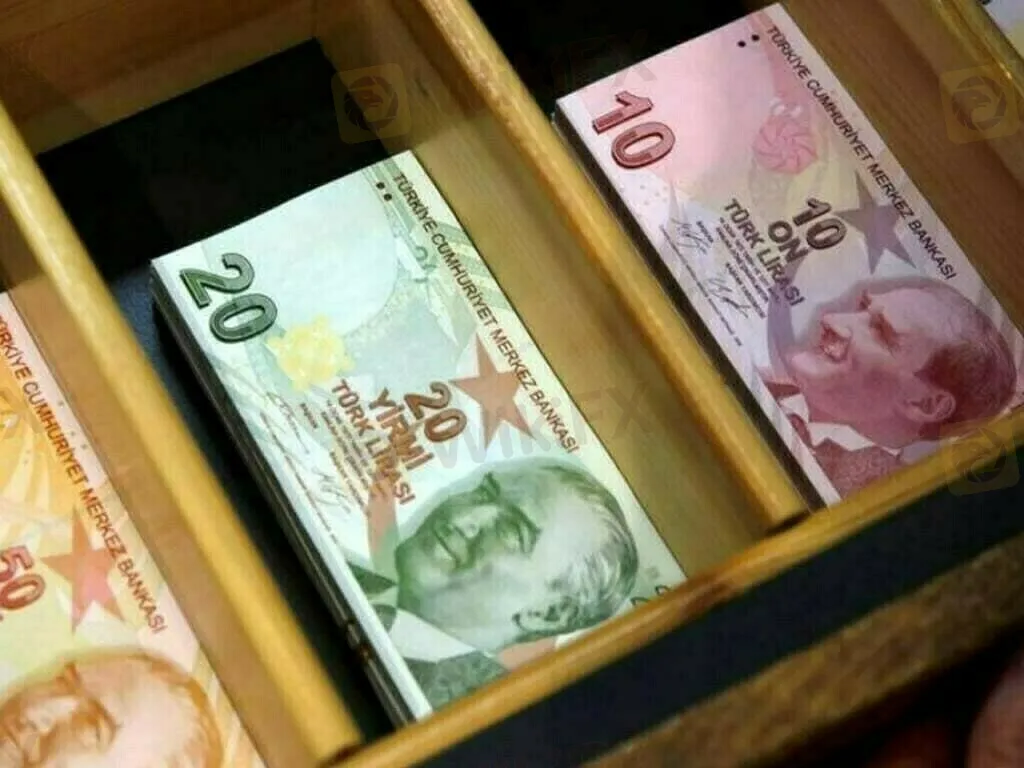简体中文
繁體中文
English
Pусский
日本語
ภาษาไทย
Tiếng Việt
Bahasa Indonesia
Español
हिन्दी
Filippiiniläinen
Français
Deutsch
Português
Türkçe
한국어
العربية
Turkish lira rises 6% after lending curbs
Abstract:The Turkish lira rose 6 percent versus the dollar on Monday after Turkey restricted lira lending to many enterprises with more than $1 million in foreign currency capital.
Click Here: After you read it, Daily Routine with WikiFX
As of 5:31 a.m. GMT, the lira was worth 16.099, up from Friday's closing rate of 16.99. It had risen as high as 16.03 against the dollar.
After most local markets closed for the week on Friday, the BDDK banking watchdog said that companies can't get new lira loans if they have more than 15 million lira ($908,000) in forex cash assets that are more than 10 percent of their total assets or annual revenues.

Analysts thought that this move would help the lira because it could force many large and medium-sized companies to convert their foreign currency assets into lira so they can keep getting credit.
Since a historic currency crash in December sent inflation soaring, the government and central bank have taken a lot of steps, and the new rule was the most recent one.
After Erdogan promised more rate cuts, the Turkish lira fell even more.
The BDDK said that the move would make the economy more stable.
Last year, the lira lost 44% of its value against the dollar. This happened after a series of interest rate cuts, even though inflation was on the rise (73.5%).
Even after the early moves on Monday, it is still 18% weaker this year.
Still putting pressure on the lira are worries about policy, low official reserves, a growing current account deficit, and investors' and savers' fears of capital controls.
Disclaimer:
The views in this article only represent the author's personal views, and do not constitute investment advice on this platform. This platform does not guarantee the accuracy, completeness and timeliness of the information in the article, and will not be liable for any loss caused by the use of or reliance on the information in the article.
Read more

Silver surges past $33—are you ready for what comes next?
Silver has once again become the center of attention in global financial markets.

171 years! One of this country’s largest crypto-related fraud
A federal court in Brazil has handed down one of the harshest sentences in the country’s history for a crypto-related fraud, jailing three executives of the now-defunct Braiscompany scheme to a combined 171 years behind bars. The case, which saw some 20,000 investors lose approximately R$1.11 billion (about USD 190 million), underscores Brazil’s intensifying crackdown on unregulated cryptocurrency operations

Japan Issues Urgent Warning on $700M Unauthorized Trades
Japan's FSA warns of $700M in unauthorized trades from phishing attacks on brokerage accounts. Cybersecurity threats continue to rise in the country.

Protect Your Portfolio in the Storm | What Are Safe Haven Assets?
Gold surged to an all-time high on Tuesday, driven by renewed weakness in the US dollar, ongoing trade war tensions, and critical remarks from President Donald Trump aimed at the Federal Reserve. These factors fuelled strong demand for safe-haven assets, pushing bullion above US$3,485 an ounce for the first time. But what exactly are safe haven assets? Why is everyone raving about them?
WikiFX Broker
Latest News
FCA Issues Alerts Against Unauthorised and Clone Firms in the UK
Consob Orders Blackout of 9 Fraudulent Financial Websites
eXch Exchange to Shut Down on May 1 Following Laundering Allegations
How a Viral TikTok Scam Cost a Retiree Over RM300,000
FCA Proposes Simplifying Investment Cost Disclosure for Retail Investors
JT Capital Markets Review
Fresh Look, Same Trust – INGOT Brokers Rebrands its Website
Tradu Joins TradingView for Seamless CFD and Forex Trading
Japan Issues Urgent Warning on $700M Unauthorized Trades
Silver surges past $33—are you ready for what comes next?
Currency Calculator


